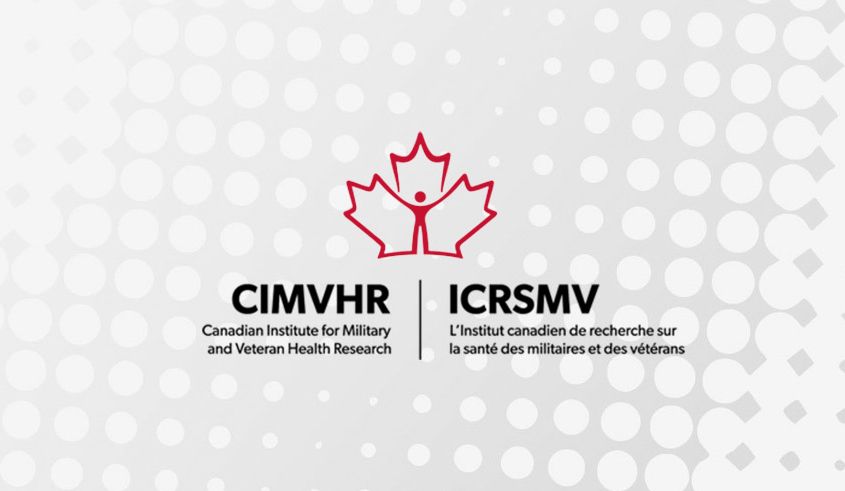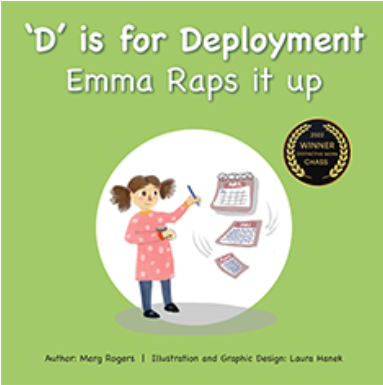Canadian Institute for Military and Veteran Health Research (CIMVHR)
For this month’s theme, we’ve been chatting with Paul Hook (managing director) about the Canadian Institute for Military and Veteran Health Research (CIMVHR).

CIMVHR’s goal is to enhance the lives of Canadian military personnel, Veterans and their families by harnessing the national capacity for research. We hope you enjoy reading about their recent and ongoing research and work.
What is CIMVHR currently working on?
We are working on three things: research, relationships, and impact. We receive annual funding from the True Patriot Love Foundation for research. That funding has enabled research on the Invictus Games 2025. CIMVHR also received funding from The War Amps to engage in any of the key priority areas of research, knowledge translation or pilot projects as it relates to military and veteran amputee health. We are also working on Canadianizing children’s books as resources for military families. That is through the generous funding of the Royal Canadian Legion.
We are always busy with events, and this year, we will co-host a families roundtable with King’s Centre for Military Health Research (KCMHR) in King’s College London in May.

What was the path to where CIMVHR is now?
It all started with one person, Alice Aiken - Founder of CIMVHR. As a physiotherapist in the Canadian Armed Forces, one person had an impact on her and the realization that Canada wasn’t doing enough for its military members and Veterans. What could be done in Kingston for military members, Veterans, and their families? The need to provide those groups with the best evidence to inform policies, practices, and programs that would impact their lives. Since that time, CIMVHR has delivered over $24m in research funds, hosted annual conferences, grown international connections, and created a peer-reviewed, academic journal highlighting the excellent research in the sector.
Where do you see CIMVHR going in the next few years?
The ecosystem is getting busier, with new institutes, a renewed focus on physical and mental health and well-being. With the launch of CIMVHR Strategy 2030, we must be at the forefront of advancing research in the various domains that affect Veterans, military personnel, and families’ well-being across the life course of service – from recruitment to old age.
CIMVHR has built a strong network nationally and globally. We have memorandums of understandings with 46 Canadian university and colleges. We will host our annual Forum in Ottawa in October over a period of three days, which will see up to 900 researchers, Veterans, clinicians, Canadian military members, and others come together to discuss and listen to new and emerging research. We also have partnerships with research institutes, and we now have 14 global affiliates within four key countries: United States of America, United Kingdom, Australia, and New Zealand.
How important is an interdisciplinary approach in studying military and veteran health research?
Military personnel and Veterans experience complex heath needs and outcomes. Interdisciplinary approaches that consider the whole-person impact of military service as opposed to a more siloed approach are critical to address complex needs and improve health outcomes.
How does CIMVHR engage with researchers beyond Canada?
Our previous scientific director, David Pedlar, used to say that CIMVHR is the big tent. We create the space for Canadian and international researchers to come together at Forum in person, and through various online webinars and discussions. Our directors also visit our various global affiliates at their institutes, and we host visits in Kingston. Throughout the year, we routinely maintain a regular dialogue with researchers from around the world. We will be hosting the Five Eyes Mental Health Research and Innovation Collaboration virtually this year. That will see up to 25 of the top researchers in their fields discuss advancing mental health research for the sector.
What advice would you give to early career scholars and researchers studying military and veteran health?
We also continue to look to the next generation of researchers through our Student and Post Doctoral Engagement Community, as well as through four scholarships at the Masters and PhD level. We know how important it is to highlight and nurture new researchers into the field and are excited to continue this focus.
Students – join SPEC! Especially in an increasingly virtual world, having a group of like-minded and supportive colleagues can make all the difference. If you find yourself as the sole (or one of the few!) military and Veteran researchers in your lab, take time to build your network. The military and Veteran health research community is an incredible group.

